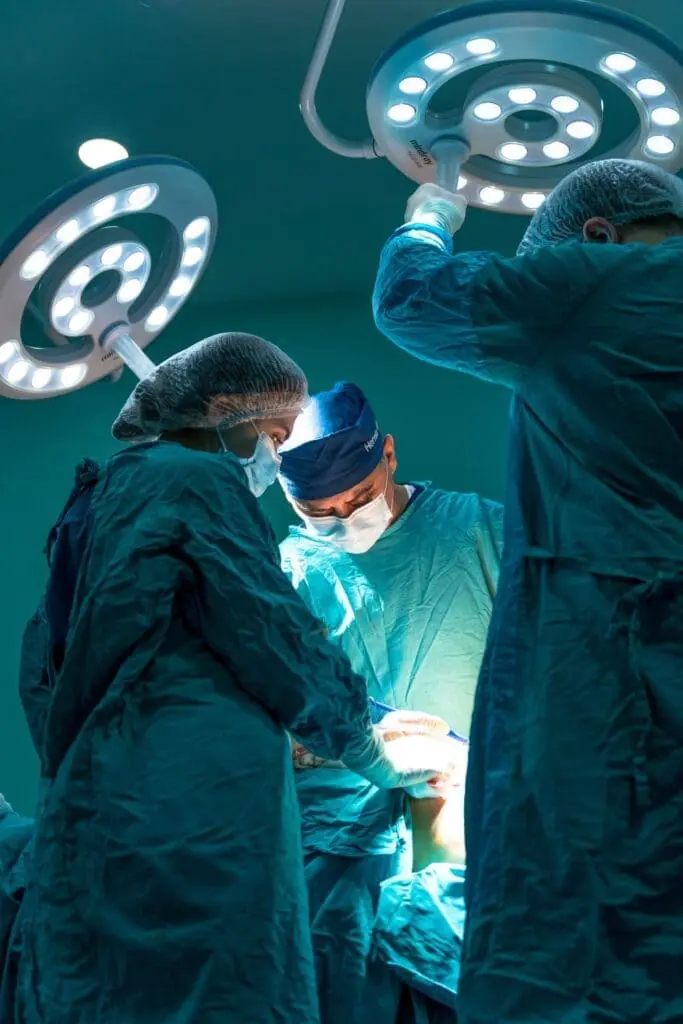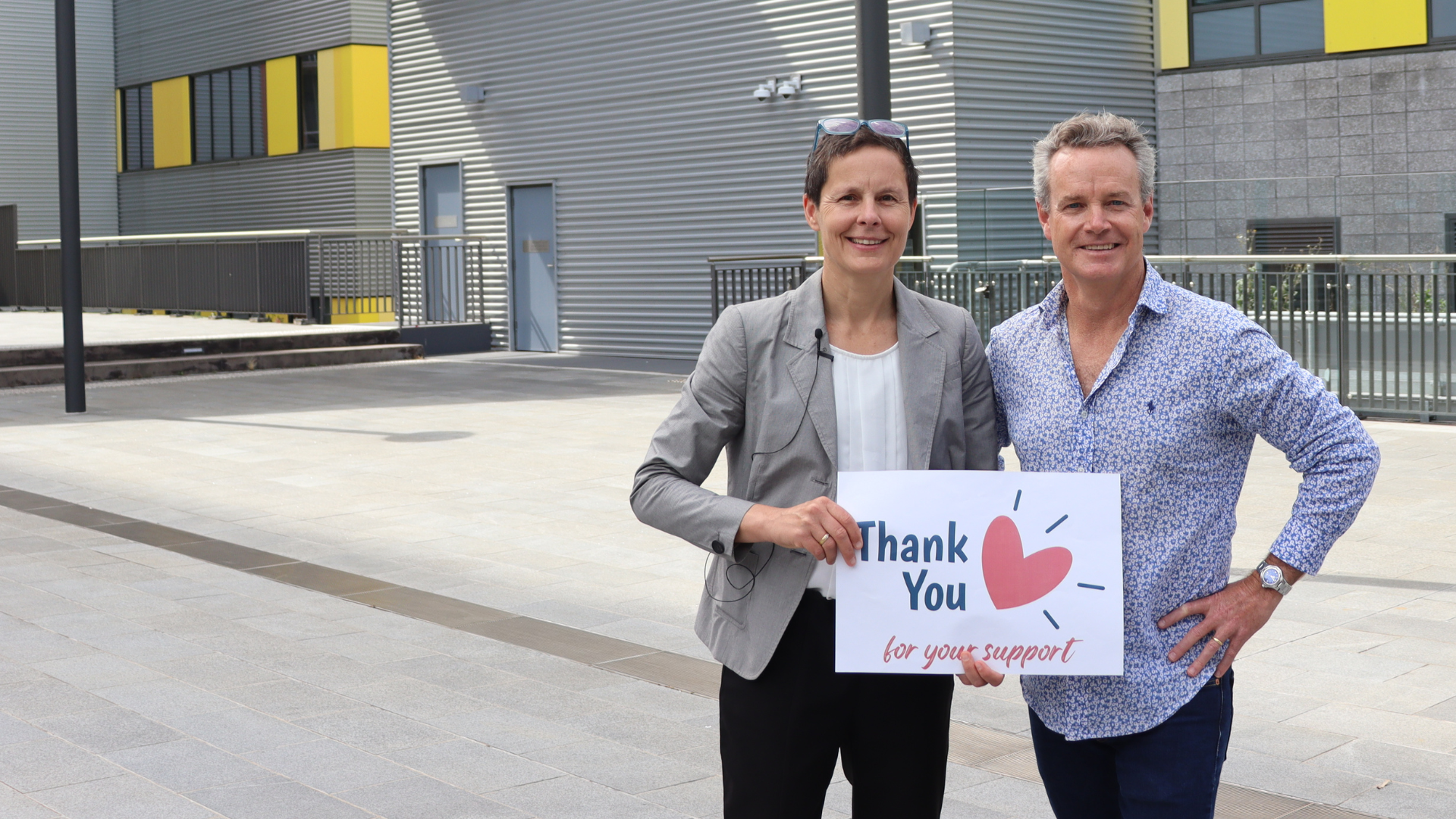
Despite leading a healthy lifestyle, Paul was unaware that he had a buildup of plaque in his coronary arteries that would trigger a sudden cardiac arrest.
Chest pain is a warning sign of coronary plaque buildup
Just before Christmas, Paul had finished work for the year and was looking forward to an overseas skiing adventure with his family.
Paul is in his mid-50s, is a non-smoker who enjoys regular exercise. His annual blood test results were excellent. He leads a busy life with two teenage sons and while he does have a reasonably stressful job, it never seemed to be a problem.
He had taken the dog for a walk to get an early morning coffee for himself and his wife Emma, when he felt chest pain. He thought it was nothing more than referred pain from an old back injury, but it persisted.
Paul told Emma about the chest pain and said he’d make an appointment to see his GP. Emma pointed out that even if he could get in to see his GP quickly, given he was complaining of chest pain, he would either send him to Royal North Shore Hospital (RNSH) or call an ambulance.
Emma suggested that if he was in that much pain, she would drive him to RNSH – and what a great decision that turned out to be.
They had just turned onto the main road, when he remembers saying to Emma that he could see black spots.
Then he lost his vision, referring to the sensation like someone had turned an old television off, and with it, his heart and breathing stopped. There was nothing he could do to stay conscious.
Emma said she saw his body jolt and he became unconscious. She gave him a shove to try and wake him and yelled, “You’re not doing this to me!”
She had the presence of mind to call 000 as she negotiated three lanes of traffic to turn into the nearest side street. Emma was struggling to get Paul out of the car when she saw two people and shouted, “I need help getting my husband out of the car!”
Two strangers, Carlos and his partner Valeria raced over. Carlos saw Paul was unresponsive and couldn’t feel his pulse. He helped Emma move Paul to the ground and he started CPR immediately. Valeria jumped into the passenger’s seat and was relaying information from the ambulance call centre to Carlos.
Paul and Emma later learned that Carlos had been a lifeguard for 10 years in Chile, often volunteering at surf competitions. Every second counted and with each compression, Carlos was pumping blood to Paul’s vital organs, ensuring they weren’t starved of oxygen.
Paul will be forever thankful to the people who came forward to offer help and comfort to Emma. He can’t imagine what it would have been like for her to watch her husband of nearly 30 years lying on the pavement.
Within minutes, ambulances had arrived, including a specialised vehicle with critical care paramedics and doctors onboard. Ambulance officers used a defibrillator to restart Paul’s heart. He was placed in an induced coma before he was intubated and stabilised. Paul’s life was in their hands as they rushed him to RNSH.
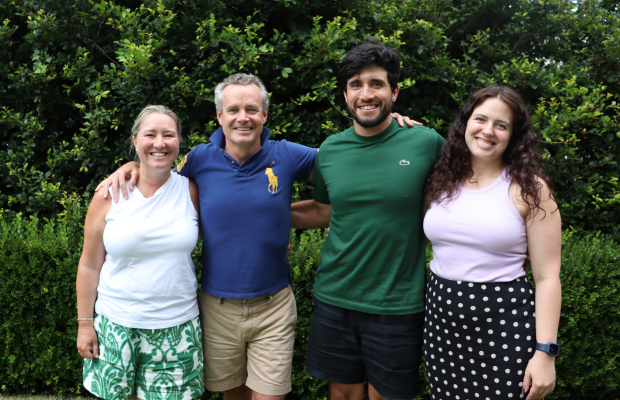
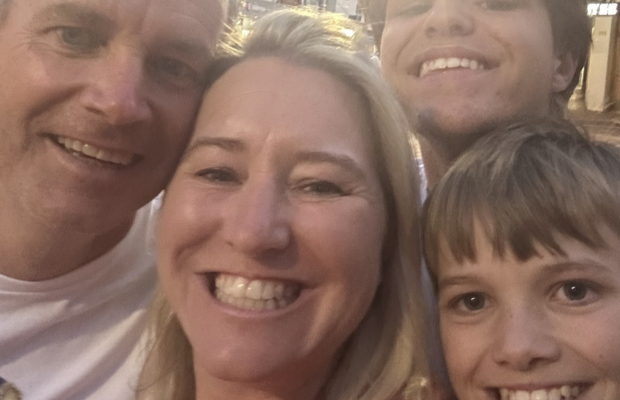
The race to unblock the plaque in Paul’s heart
When he was at RNSH, cardiologist Professor Gemma Figtree AM provided emergency treatment by rapidly inserting three stents to keep the arteries open and restore blood flow to Paul’s heart.
- Up to ¼ of heart attack patients don’t have a risk factor that would be picked up by their GP.
- Coronary heart disease is the leading cause of death for men. Twice as many men die from coronary heart disease than women.
- Every 9 minutes an Australian has a heart attack. 50% of those people will have never had a single symptom.
At the suggestion of one of the ambulance officers, Emma had contacted her sister and asked her to go to her home to explain what had happened to her two sons and bring them to RNSH – an incredible thing to ask of your sister. A social worker spoke with the family about what was happening to Paul and when they would be able to see him, offered them water and even asked Emma if she needed her mobile phone charged.
As Emma said, it was the kindness shown for even the smallest things, that helped ease the enormous burden.
Professor Figtree saw Paul’s family soon after. She told them that a coronary angiogram showed plaque in his heart that had blocked one of his major arteries, causing the heart attack, but “plumbing” in that artery was now restored. She also highlighted that he would now be able to access important medicine that could stop further buildup of plaque and future heart attacks.
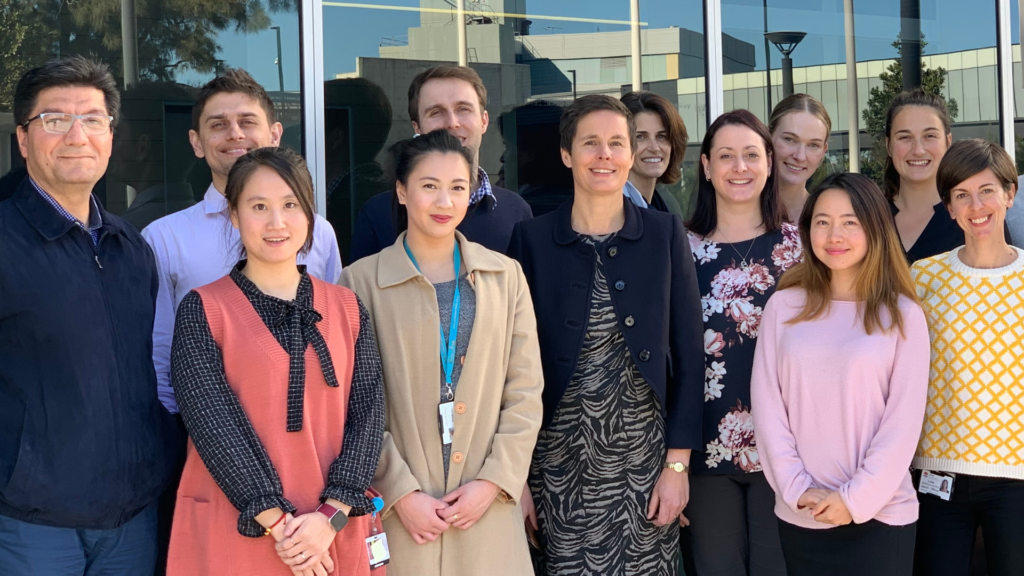
Vital research into silent coronary plaque
Paul’s cardiologist Professor Gemma Figtree AM leads an international program of research to discover and translate new blood-based markers of early coronary plaque that can be used in combination with advanced imaging to detect and treat the plaque before symptoms and a heart attack.
Gemma’s research program is driven by the major unmet need illustrated by what happened to Paul – the need to detect and treat silent plaque before a heart attack.
It was a nerve-wracking time for Paul’s family, however the nursing staff in the ICU were extraordinary. Paul’s youngest son found it confronting to see him with lots of tubes, but Emma said the nurses took the time to explain everything to try and take the fear away.
The head of ICU spoke to Emma about the possibility that Paul’s path to recovery may be very long if his brain had been starved of oxygen. Understandably, this upset her particularly when the doctors were trying to bring him out of sedation and he seemed confused.
As Emma left the hospital that night, the nurse offered her comfort and reassured her that she could call her anytime. Unable to sleep, Emma called her at 2 am, and was overjoyed to hear her say that it seemed Paul’s short-term memory was gradually returning.
Paul continued to improve and by lunchtime the next day, he was sitting up in bed, chatting to everyone. It was a great relief not only for Paul’s family, but the nursing staff and doctors who were also genuinely elated to see he was doing so well.
He was discharged mid-afternoon on Christmas Day and the team arranged for Hospital in the Home, where either a nurse or a physiotherapist came every day for a week to check on Paul’s well-being.
Having had a cardiac arrest, Paul says he felt vulnerable, and it took some time for him to regain trust in his heart. He took a great deal of comfort from the consistency in what he was being told by the Hospital in the Home staff – that he would recover.
Paul believes that we are incredibly fortunate to have such excellent healthcare in NSW, and he will always be so very grateful for the exceptional treatment he received and the warmth and care with which his family were treated.
Our hospitals and healthcare staff are there for us throughout our whole lives, especially in unexpected moments like these. Please donate to the NORTH Foundation today to support the healthcare and medical research teams who provide life-saving care.
—-
This story featured in our recent tax appeal 2025.
